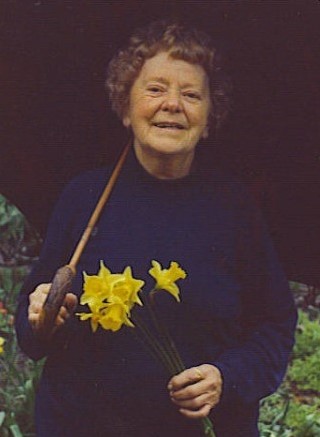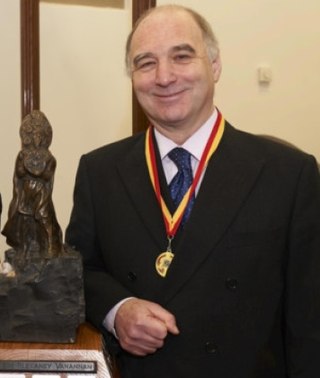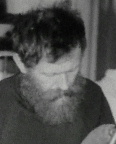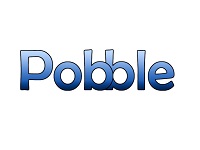
Yn Chruinnaght is a cultural festival in the Isle of Man which celebrates Manx music, Manx language and culture, and links with other Celtic cultures.

Literature in the Manx language, which shares common roots with the Gaelic literature and Pre-Christian mythology of Ireland and Scotland, is known from at least the early 16th century, when the majority of the population still belonged to the Catholic Church in the Isle of Man.

Philip Anderson Gawne, better known as Phil Gawne, is a former Member of the House of Keys for Rushen, a constituency in the Isle of Man.

Thomas Brian Stowell, also known as Brian Mac Stoyll, was a Manx radio personality, linguist, physicist, and author. He was formerly Yn Lhaihder to the Parliament of the Isle of Man, Tynwald. He is considered one of the primary people behind the revival of the Manx language.

Bunscoill Ghaelgagh is a government-run Manx-language primary school in St John's, Isle of Man that has enabled 170 children to learn fluent Manx. As of 2011 it is the only school in the world where children are taught their lessons solely in Manx and which allows children to learn the language fluently. Pupils may then go on to Queen Elizabeth II High School in Peel where they can study a GCSE equivalent qualification in Manx as well as up to two subjects in the language to maintain their fluency, or to the high school in their catchment area.
John Joseph Kneen was a Manx linguist and scholar renowned for his seminal works on Manx grammar and on the place names and personal names of the Isle of Man. He is also a significant Manx dialect playwright and translator of Manx poetry. He is commonly best known for his translation of the Manx National Anthem into Manx.

Mona Douglas was a Manx cultural activist, folklorist, poet, novelist and journalist. She is recognised as the main driving force behind the modern revival of Manx culture and is acknowledged as the most influential Manx poet of the 20th century, but she is best known for her often controversial work to preserve and revive traditional Manx folk music and dance. She was involved in a great number of initiatives to revive interest and activity in Manx culture, including societies, classes, publications and youth groups. The most notable and successful of these was Yn Chruinnaght.

Robert Corteen Carswell RBV is a Manx language and culture activist, writer and radio presenter. In 2013 he received the Manx Heritage Foundation's Reih Bleeaney Vanannan award for outstanding contributions to Manx culture.
Mannin: Journal of Matters Past and Present relating to Mann was an academic journal for the promotion of Manx culture, published biannually between 1913 and 1917 by the Manx Society, Yn Cheshaght Ghailckagh. It was edited by Sophia Morrison, with the assistance of William Cubbon.

The Reih Bleeaney Vanannan is the Isle of Man's most prestigious annual award for culture. It is presented by Culture Vannin to the person or group who, in the opinion of the panel of assessors, has made the most outstanding contribution to Manx culture. It is officially presented by the President of Culture Vannin, normally in January each year.

Colin Jerry was a Manx cultural activist best known for his contributions to Manx music through his books, Kiaull yn Theay, published in two volumes. He was awarded the Reih Bleeaney Vanannan in 1991 for his contributions to Manx culture which were 'extensive and staggering.'

Yn Çheshaght Ghailckagh, also known as the Manx Language Society and formerly known as Manx Gaelic Society, was founded in 1899 in the Isle of Man to promote the Manx language. The group's motto is Gyn çhengey, gyn çheer.
John Gell, also known as Jack Gell or Juan y Geill was a Manx speaker, teacher, and author who was involved with the revival of the Manx Language on the Isle of Man in the 20th century. His book Conversational Manx, A Series of Graded Lessons in Manx and English, with Phonetic Pronunciation has been used by learners of the Manx language since it was published in 1953.
Edmund Evans Greaves Goodwin was a Manx language scholar, linguist, and teacher. He is best known for his work First Lessons in Manx that he wrote to accompany the classes he taught in Peel.
Lewis Crellin (1901–1990) also known as Louis Crellin or Lewis y Crellin was a Manx language scholar and teacher who was involved with the revival of the Manx language on the Isle of Man in the 20th century and the Manx independence movement in the 1960s.
Doug Fargher also known as Doolish y Karagher or Yn Breagagh, was a Manx language activist, author, and radio personality who was involved with the revival of the Manx language on the Isle of Man in the 20th century. He is best known for his English-Manx Dictionary (1979), the first modern dictionary for the Manx language. Fargher was involved in the promotion of Manx language, culture and nationalist politics throughout his life.
Charles Craine (1911-1979) also known as Chalse y Craayne, was a Manx language activist and teacher who was involved with the revival of the Manx language on the Isle of Man in the 20th century.
John William Radcliffe, more commonly known as Bill Radcliffe, or also Illiam y Radlagh, was a Manx language activist, author, and teacher who was involved with the revival of the Manx language on the Isle of Man in the 20th century. His work recording the last native speakers of the language with the Irish Folklore Commission helped to ensure that a spoken record of the Manx language survived.
Leslie Quirk, also known as Y Kione Jiarg, was a Manx language activist and teacher who was involved with the language's revival on the Isle of Man in the 20th century. His work recording the last native speakers of the language with the Irish Folklore Commission and the Manx Museum helped to ensure that a spoken record of the Manx language survived.

Pobble is a Manx language advocacy group and charity that works to promote the Manx language as "a community asset" on the Isle of Man. Pobble has also awarded the Aundyr Brian Stowell since 2019.










